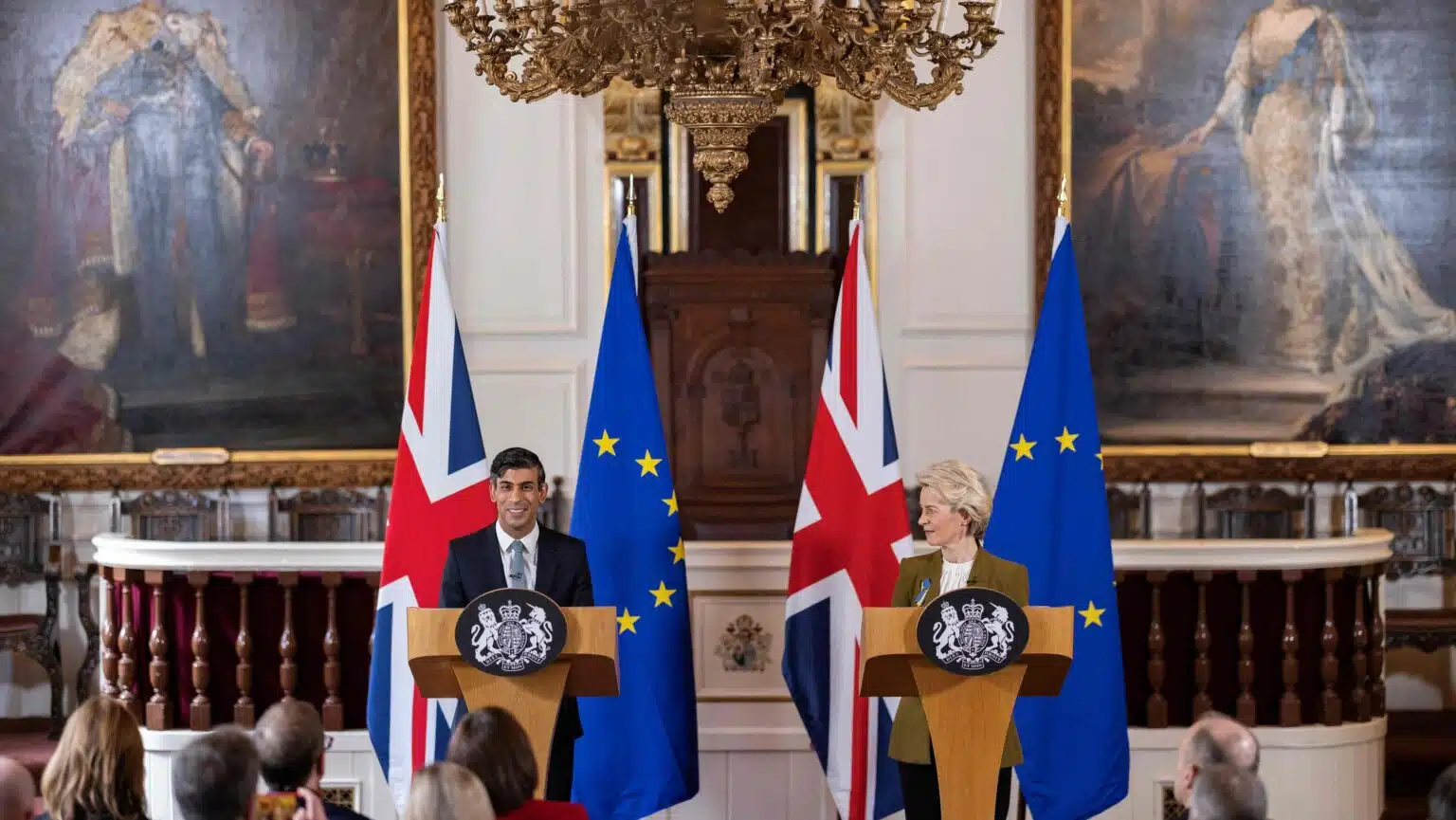Table of Contents
The European Union and United Kingdom have signed a new agreement regarding trade that intends to solve one of the most problematic challenges created by Brexit. The agreement will create a long-term resolution for the trading status of Northern Ireland.
British Prime Minister Rishi Sunak reached a deal with European Commission President Ursula von der Leyen on Monday that will now allow goods to enter Northern freely from other parts of the U.K.

ABOUT IRELAND’S TRADE
Ireland is a member of the European Union, which means that it is part of the EU’s single market and customs union. This allows for the free movement of goods, services, capital, and people within the EU, and also means that Ireland is subject to the EU’s external trade policy.
As such, trade policy is closely aligned with that of the EU and participates in negotiations for trade agreements on behalf of the EU. In recent years, Ireland has been involved in negotiations for several major trade agreements, including the Comprehensive Economic and Trade Agreement (CETA) with Canada, the Mercosur trade agreement with South American countries, and the EU-Japan Economic Partnership Agreement.
In addition to these multilateral agreements, has also been involved in bilateral trade agreements with other countries. For example, Ireland signed a bilateral trade agreement with China in 2018, which is intended to facilitate greater trade and investment between the two countries.
The history of trade between the United Kingdom, European Union, and Ireland goes back several decades.
In 1973, the United Kingdom joined the European Economic Community (EEC), which later became the European Union (EU), thereby establishing a single market that allowed for the free movement of goods, services, capital, and people within the EU. This facilitated trade between the UK and EU member states, including Ireland.
However, in 2016, the UK held a referendum on its membership in the EU, and the majority voted in favor of leaving. This led to a protracted and often contentious negotiation process between the UK and EU, including the issue of the Northern Ireland border, which became a major sticking point in the negotiations.
In December 2020, the UK and EU finally agreed to a Trade and Cooperation Agreement (TCA), which addressed various areas of trade and cooperation between the two parties. The TCA also addressed the issue of the Northern border by keeping Northern within the EU’s single market for goods, thereby avoiding the need for a hard border with the Republic.
Throughout this process, played a significant role in advocating for the interests of Northern Ireland and the Republic of Ireland, as well as seeking to maintain a strong economic relationship with both the UK and the EU.
The new agreement which is called the Windsor Framework is “agreed by the Prime Minister and European Commission President, and replaces the old Northern Protocol, providing a new legal and UK constitutional framework”- said by the government of UK
The agreement is a new way forward for a prosperous, stable future for Northern and all it’s trade partners.
- The deal seeks to resolve tensions caused by the 2020 post-Brexit arrangements governing Northern and its open border with the Republic of Ireland.
- The issue has triggered the collapse of the regional government, and affected Northern Ireland’s peace process and ties between the UK and EU.
- The new deal is expected to ease physical checks on goods flowing from other parts of the UK to Northern
- Read next: Israelis and Palestinians vow to curb violence (2024)












